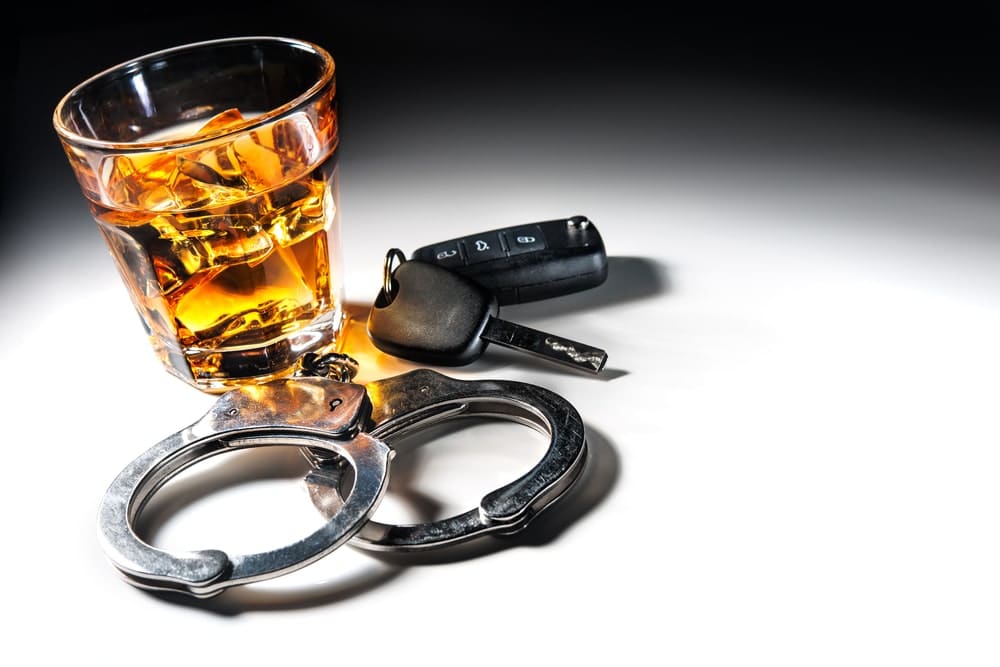Passionate Law Firm
Providing Aggressive
Representation

Most drivers understand that driving under the influence (DUI) law is a criminal offense. However, those arrested for DUI often need clarification on the specific laws that apply to their case. Since DUI laws can be complex, it’s crucial to consult an experienced Chino DUI attorney immediately for expert guidance and defense.
When arrested for driving with a blood alcohol content (BAC) of 0.08% or higher, the driver typically faces two DUI charges. The first charge is for driving under the influence under California Vehicle Code Section 23152(a) VC. The second charge is for driving with a BAC of 0.08% or higher under California Vehicle Code Section 23152(b) VC.
This dual approach allows the prosecutor to pursue two separate legal theories. The first theory argues the defendant is guilty of DUI due to impaired driving behavior, regardless of BAC. The second theory claims the defendant is guilty because their BAC exceeded the legal limit of 0.08%.
This gives the prosecution multiple ways to secure a conviction. Therefore, it’s essential for anyone facing DUI charges to consult an experienced Chino DUI attorney. A skilled lawyer can analyze the case, challenge evidence, and explore strategies to reduce or dismiss the charges.
Violations of California Vehicle Code Section 23152 VC are typically misdemeanors. However, if a driver has three or more DUI convictions within the last ten years, a subsequent offense may be charged as a felony DUI. A felony DUI conviction can result in prison time and substantial fines.
In some cases, a driver may refuse chemical testing after a DUI arrest. Even with a refusal, they can still face charges under California Vehicle Code Section 23152(a) VC. Additionally, refusal can enhance the defendant’s sentence.
Drivers must submit to a chemical test in the following situations:
PAS Test Before Arrest: Drivers on probation with search and seizure conditions or those under 21 must take a preliminary alcohol screening (PAS) test. Since 2008, refusing a PAS test for probationers is a violation of probation terms and a criminal offense. Other drivers may refuse the PAS test.
Chemical Test After Arrest: All drivers arrested for a DUI in Chino or Southern California must submit to a breath or blood test. If drugs are suspected, a urine test is required.
Refusing a chemical test can vary depending on the case. Refusal can occur if a driver simply says “no” when asked to take the test. If the driver is too intoxicated to blow into the equipment and refuses another test, it can also be considered a refusal.
A significant delay in responding to the test request may be seen as a refusal. A good DUI attorney will examine whether officer conduct or delays led to the refusal. If test equipment fails, the driver’s failure to provide a sample may not be considered a refusal.
Before using refusal against a driver, police must inform them of the consequences of refusing the test. If the driver is unconscious and cannot hear or understand the warning, the court will not consider it a refusal.
California DUI laws allow police to forcibly obtain a blood sample if necessary, especially if evidence of alcohol or drugs will be lost over time.
Court Penalties: Refusing a chemical test results in more severe penalties. If convicted of DUI, the court mandates additional jail time. For a first-time DUI, the penalty is 48 hours in jail. For a second DUI, it’s 96 hours. A third DUI offense with refusal results in 10 days of mandatory jail time for the refusal, plus any additional time for the DUI.
DMV Penalties: The California DMV will suspend the driver’s license for one year if they refuse a chemical test. There’s no possibility of a restricted license. For drivers with prior DUI convictions, the DMV will add the refusal suspension to any other court-imposed suspension.
If you’ve been arrested or charged with DUI or DUI refusal in Chino or Southern California, call Shaw 3 Law Firm. Walter Shaw has extensive knowledge of California DUI laws and will fight to resolve your case without jail time.
A DUI blood test may show no alcohol but reveal the presence of drugs. In this case, the driver can be charged with driving under the influence of drugs under California Vehicle Code Section 23152(f) VC. If the driver was under the combined influence of alcohol and drugs, they could face DUI charges under the same section.
Besides criminal penalties, California DMV administrative laws apply to DUI arrests. If a driver’s BAC is 0.08% or higher, the California DMV will suspend their driving privileges 30 days after the arrest, regardless of the court outcome. However, the driver can challenge the suspension by requesting an administrative hearing within 10 days of the arrest. Failure to request the hearing will result in an automatic suspension. A DMV hearing officer (not a judge or attorney) will handle the hearing, so it’s crucial to have legal representation to ensure the best outcome.
If you’ve been arrested for DUI in Chino, contact an experienced Chino DUI attorney immediately. DUI Lawyer Walter D. Shaw has handled hundreds of DUI cases and has a thorough understanding of California DUI laws. He fights aggressively for his clients’ rights in San Bernardino County, which spans to key cities such as Chino, Chino Hills, Colton, Fontana, Hesperia, Highland, Loma Linda, Montclair, Ontario, Rancho Cucamonga, Redlands, Rialto, San Bernardino City, Upland, and Victorville, as well as extending to Los Angeles County and Orange County. Check out our case results.
For more information about Chino DUI laws and to schedule a free consultation, call Shaw 3 Law Firm at 951-263-0412 or visit us at 337 N. Vineyard Ave, Suite 315, Ontario, CA 91764. We are available 24/7 to assist you.